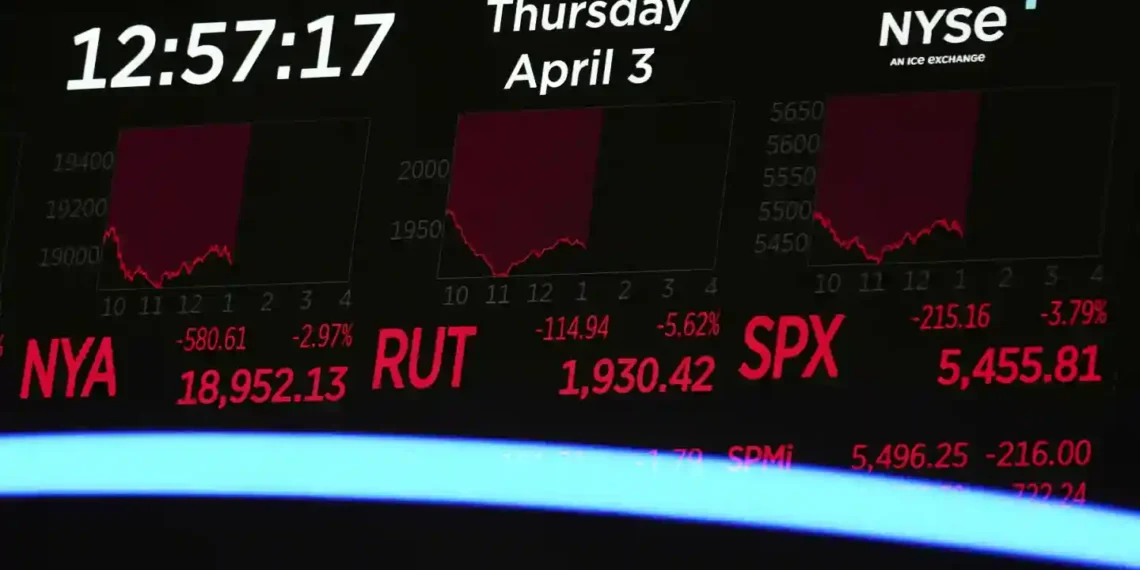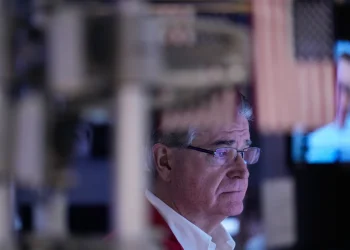Think Twice Before Bailing Out of the Stock Market, Experts Warn
Market drops may feel alarming — but financial advisers say staying calm and focused is the key.
The recent rollercoaster on Wall Street has many investors anxious, but history shows this isn’t out of the ordinary. Big market drops happen — and rebounding from them is part of the long-term investment journey.
The S&P 500 has dropped over 16% since peaking in February, largely due to rising uncertainty around President Trump’s tariffs. Harsh trade measures recently announced have rattled investor confidence, reminding many of the early days of the 2020 COVID crash.
While some hoped tariffs were just a bargaining chip, the fear now is that they might stick — and that’s shaken both businesses and households trying to plan for the future.
Market dips of 10% or more happen about once a year, and while they’re tough to stomach, they’re part of a normal market cycle. Some say the market was overheating anyway, driven by just a few Big Tech companies — the so-called “Magnificent Seven” — that carried much of the S&P 500’s gains last year.
It’s tempting, especially when losses start piling up. But pulling out of the market can lock in losses permanently — and miss out on the recovery that often follows.
Historically, the market has bounced back from every major downturn — including the Great Depression, the dot-com crash, and COVID-19.
Experts say unless you need the money within the next few years, it’s best to stay put.
“No one can time the market,” says WalletHub CEO Odysseas Papadimitriou. “Trying to guess the perfect moment to buy or sell is a losing game.”
Possibly — but not out of panic.
Many experts recommend revisiting your diversification strategy. If most of your investments are tied to U.S. Big Tech, for example, you may be more exposed than you think.
“A diversified strategy can’t prevent the punches, but it can help soften the blows,” says Brian Jacobsen of Annex Wealth Management.
Financial advisers suggest looking at more resilient sectors like healthcare, utilities, and consumer staples, which tend to perform more steadily during economic uncertainty.
Younger investors may be facing their first major downturn — but they also have a huge advantage: time.
With decades ahead, young investors can ride out volatility and reap long-term rewards.
“Now is not the time to make emotional decisions,” says Bankrate’s Stephen Kates. “Re-anchor to your long-term goals and stay focused.”
Older investors don’t have as much time to recover from losses — but even in retirement, your money might need to last 30 years or more.
Experts suggest limiting withdrawals during downturns and discussing strategy with your financial adviser.
“You may want to slow down spending temporarily and ramp it back up once markets recover,” advises Neel Mukherjee, CIO at TIAA Wealth Management.
The honest answer? No one knows.
Markets are unpredictable — and while this can feel unsettling, trying to time your way around it often does more harm than good.
So take a deep breath, stay diversified, and don’t let fear make the decisions. The market has weathered many storms — and if history is any guide, it will rise again.
This article was rewritten by JournosNews.com based on verified reporting from trusted sources. The content has been independently reviewed, fact-checked, and edited for accuracy, neutrality, tone, and global readability in accordance with Google News and AdSense standards.
All opinions, quotes, or statements from contributors, experts, or sourced organizations do not necessarily reflect the views of JournosNews.com. JournosNews.com maintains full editorial independence from any external funders, sponsors, or organizations.
Stay informed with JournosNews.com — your trusted source for verified global reporting and in-depth analysis. Follow us on Google News, BlueSky, and X for real-time updates.














